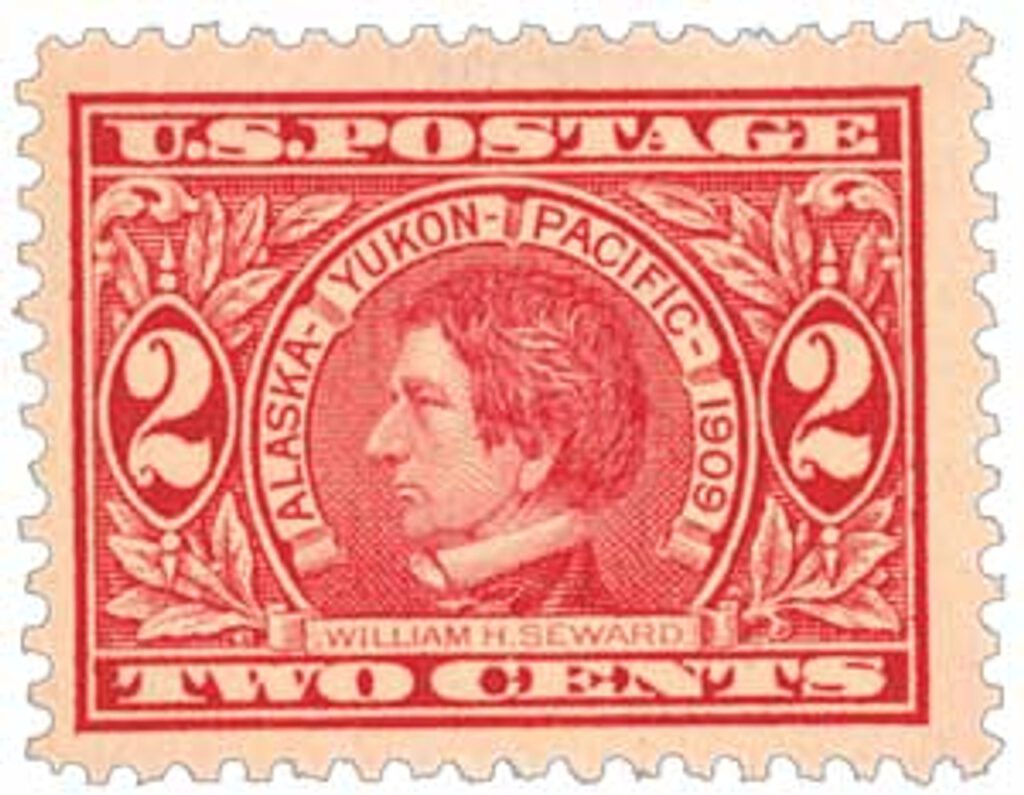On July 23, 1867, the United States opened its first post office in Alaska— months before the US formally took possession of the territory. While Alaska’s official transfer was still being prepared, the US was already laying down its presence—and the post office was a powerful symbol of that.
Before Alaska became a US possession, it had been part of the Russian Empire since the 1700s. The Russians established their main colonial outpost in Sitka, which they called New Archangel, and used it as the capital of Russian America. But by the 1860s, Russia was facing economic strain and feared losing Alaska—especially to the British—if war ever broke out. So, they offered to sell the territory to the United States.
The man behind the deal on the American side was US Secretary of State William H. Seward. He was a firm believer in expanding the nation’s borders and future economic power. On March 30, 1867, Seward signed a treaty to purchase Alaska for $7.2 million, a sum that many Americans thought was outrageous. Critics called it “Seward’s Folly” and “Seward’s Icebox,” thinking the region was nothing more than a frozen wilderness. But Seward saw the value: natural resources, access to the Pacific, and a foothold in the Arctic. More importantly, he understood that control meant more than signing a treaty—it meant building institutions, connecting people, and putting American systems in place. That’s where the postal service came in.
John Henry Kinkead, a former businessman and Union loyalist from Nevada, was appointed by President Andrew Johnson as the first US postmaster in Alaska. Kinkead had traveled to Sitka as part of the US Occupation Commission, which was responsible for helping transition the region from Russian to American control. As postmaster, Kinkead’s job was to set up a working mail system—even though he was doing so in a town that was still technically foreign soil.
Sitka’s new post office opened on July 23, 1867, while the American flag had not yet been officially raised. This early move was not just practical—it was symbolic. It signaled that the US was already committed to integrating Alaska into its national fabric. Mail service is one of the first services any government provides, and it plays a big role in communication, governance, and identity.
Running a post office in 1867 Alaska, however, was no easy task. Sitka was over 2,000 miles from San Francisco, the nearest mail distribution hub. There were no roads, no telegraph lines, and no railroads connecting Alaska to the rest of the United States. Mail had to travel by steamship, which could take several weeks—if the weather cooperated. Storms, fog, and rough seas were regular problems in the Gulf of Alaska.
Because the US treated Alaska like any other domestic destination, there were no special postal rates at first. However, mail had to be carried over long distances at great cost. The US government covered much of the expense, understanding that the goal was to establish stability and communication in the far-off land. Later, when population grew and more post offices were established in the 1880s and 1890s—especially during the Klondike Gold Rush—mail service improved, and special postal routes were created.
Kinkead continued to serve in several administrative roles and eventually became the first governor of the Territory of Alaska in 1884. He played a key role in helping bring basic infrastructure and order to the remote region during its earliest years under American rule. His experience in Sitka as the first postmaster gave him an understanding of just how isolated and challenging the region could be.
As time went on, more post offices were opened throughout Alaska, especially during the gold rush era of the late 1800s and early 1900s. Remote mining camps, trading posts, and new settlements depended heavily on the mail. In fact, mail delivery by dog sled became a legendary part of Alaskan history, especially in winter months when ships couldn’t reach inland areas. Later, Alaska became a testing ground for airmail routes, with daring bush pilots flying letters over vast, frozen wilderness.
| FREE printable This Day in History album pages Download a PDF of today’s article. Get a binder or other supplies to create your This Day in History album. |
Discover what else happened on This Day in History.






